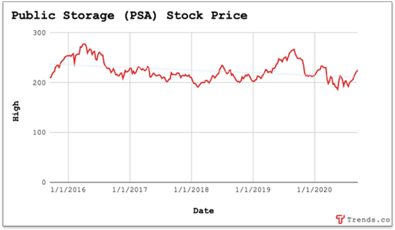nlopchantamang.com
Green Opportunities in Cannabis Security
Aja Frost @ajavuu
Source: Marijuana Business Factbook
The Signal: The legalization of cannabis for recreational use across the US is creating opportunities for ancillary products and services. For every dollar consumers spend at cannabis dispensaries and stores, an additional $2.50 of economic value will be created. One surprising industry that will benefit: security.
Strict security requirements are part of the regulatory red tape that’s associated with cannabis legalization.
While the hardware and software components of cannabis security systems don’t differ from standard security products, they require much more:
- comprehensive surveillance capabilities;
- robust building access control; and
- system documentation.
To make matters more complicated, legalization is happening at the state level -- meaning security regulations are, too. Federal compliance standards are almost inevitable as the industry matures.
Some of the most common security requirements include:
- Video surveillance systems featuring functional, unobstructed, high-resolution cameras in any areas where cannabis is handled
- Security personnel for storefronts during operating hours, and, in some circumstances, 24/7
- Alarm systems that integrate with secure storage facilities
- Monitoring and storage of surveillance recordings and other records (e.g., personnel, inventory, and purchase information)
- Strict building control to prevent unauthorized access to areas containing cannabis
- Notifying regulatory agencies (sometimes within 24 hours) in the event of incidents such as a theft or breach
While security regulations are a headache for cannabis business operators, they create fertile ground for entrepreneurs. The cannabis industry was worth ~$15B in 2019 and is expected to reach ~$74B globally by 2027. The global security services market, meanwhile, was estimated to be worth $134B in 2019.
The Opportunity: According to a 2019 white paper from Robert H. Perry, a leading manager of the sale of security companies, “when all the legal ramifications… are sorted out, the opportunities for contract security companies in [the cannabis] industry are phenomenal.”
A number of specialized security companies have started surfacing in markets where cannabis was legalized first. In Canada, 3 Sixty Solutions -- which provides security systems, training, guards, and transport to the cannabis industry -- went public in early 2019.
According to the company’s latest financial statements, quarterly revenue in Q3 2019 increased by 12% to $8.6m, bringing the company’s YTD revenue to $19.5m -- compared to the ~$3m it generated by Q3 2018.
Equipment: As legalization expands, so will the needs of cannabis businesses -- there’s opportunity to invest early in high-quality video surveillance cameras, cloud-based door access controllers, and lockable containers.
According to new research, gross margins in the security camera equipment and installation business, currently ~38%, are on the rise.
Outsourced Video Surveillance Services (VSaaS): Video surveillance in the cannabis industry is tightly regulated. Businesses that can’t meet the requirements themselves might outsource the job to other companies.
In addition to high-quality footage, regulations in many states stipulate that:
- cannabis is captured on video at all stages of production;
- the footage is stored for at at least 30 days;
- and video feeds are continuous and monitored 24/7.
Specialized video surveillance services could serve cannabis businesses -- potentially from anywhere in the world.
Audits and Training: Entire industries to help businesses remain compliant will emerge as the cannabis red tape grows. An uncertain and unpredictable regulatory environment calls for specialists in the field.
For comparison, the environmental health and safety (EHS) services industry is dedicated to helping employers remain compliant with regulations that ensure the health and safety of their workers. The industry is expected to grow from $5.3B in 2019 to $8.6B by 2024.
Similar services could aid cannabis businesses -- with training, assessments, audits, certifications, and consulting on expanding regulations.


Leave a Comment